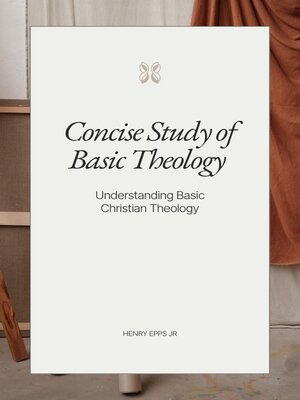Concise Study of Basic Theology Vol III
ebook ∣ Concise Study of Basic Theology, #3 · Concise Study of Basic Theology
By Henry Epps

Sign up to save your library
With an OverDrive account, you can save your favorite libraries for at-a-glance information about availability. Find out more about OverDrive accounts.
Find this title in Libby, the library reading app by OverDrive.



Search for a digital library with this title
Title found at these libraries:
| Library Name | Distance |
|---|---|
| Loading... |
IN every science, there are two factors: facts and ideas; or, facts and the mind. Science is more than knowledge. Knowledge is the persuasion of what is true on adequate evidence. However, the facts of astronomy, chemistry, or history do not constitute the science of those departments of knowledge. Nor does the mere orderly arrangement of facts amount to science. Historical facts arranged in chronological order, are mere annals. The philosophy of history supposes those facts to be understood in their causal relations. In every department, the man of science is assumed to understand the laws by which the facts of experience are determined; so that he not only knows the past, but can predict the future. The astronomer can foretell the relative position of the heavenly bodies for centuries to come. The chemist can tell with certainty what will be the effect of certain chemical combinations. If, therefore, theology be a science, it must include something more than a mere knowledge of facts. It must embrace an exhibition of the internal relation of those facts, one to another, and each to all. It must be able to show that if one be admitted, others cannot be denied!







